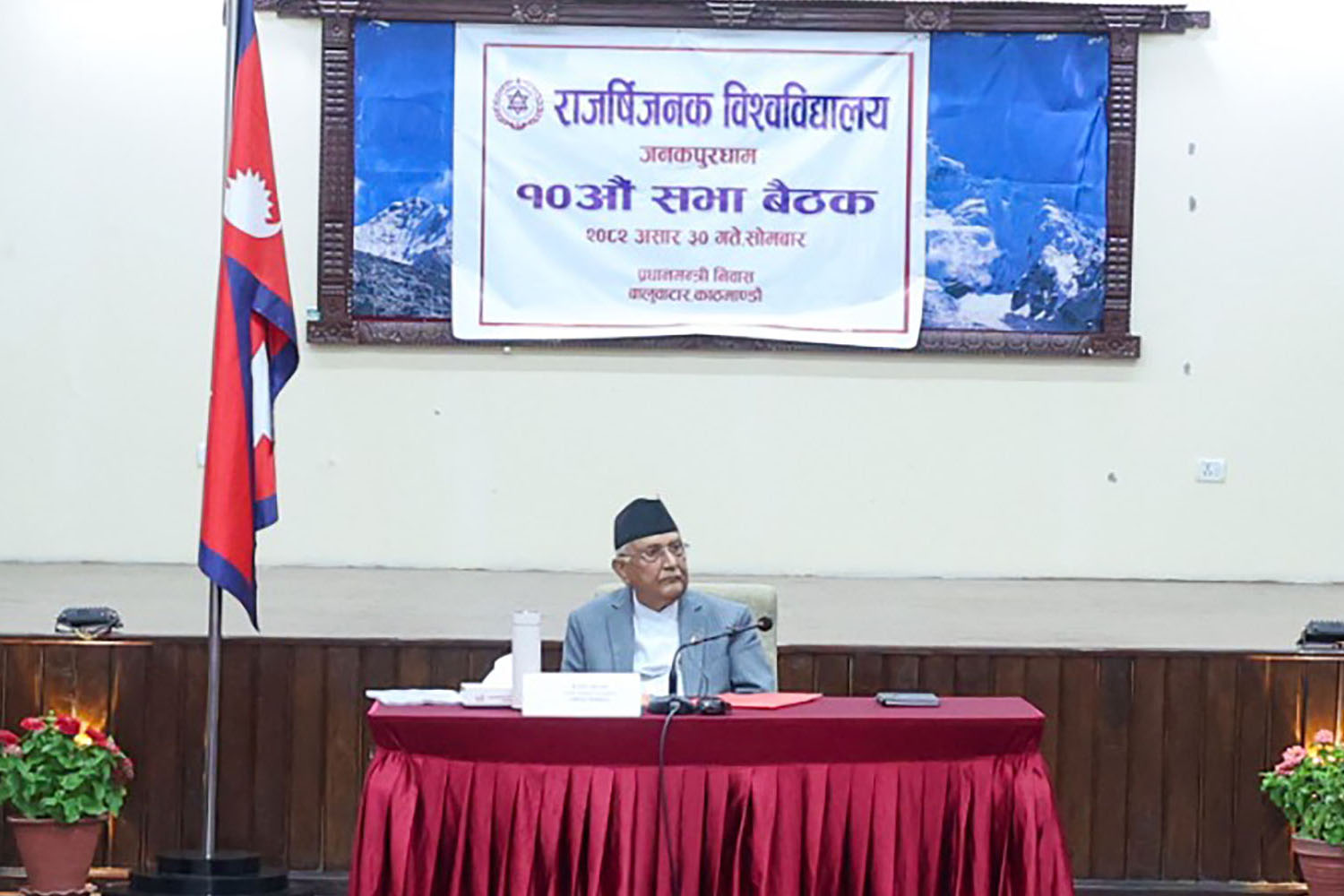Legal Dispute Over Law Colleges in Nepal
Anishma Gubhaju recently completed her first semester as a law student at Mount View International College, where she ranked first among 40 students. However, her studies, along with those of other students enrolled in BALLB programs affiliated with Rajashri Janak University, are under scrutiny due to an interim order issued by the Supreme Court last September. The court had instructed all law colleges affiliated with RJU to halt admissions and teaching until a full hearing could be conducted.
The Nepal Bar Council has confirmed that these institutions are violating the Supreme Court’s directive. As the legal case continues, students like Gubhaju and approximately 200 others who have finished their first semester face uncertainty about whether their education will be recognized by the court.
In August, Rajarshi Janak University granted affiliations to 15 new law colleges, leading to a prolonged legal dispute. Students from Kathmandu University School of Law filed a writ petition in September, arguing that these newly affiliated colleges did not meet the quality standards set by the Nepal Bar Council and the Nepal Legal Education Regulation Act. They claimed that the universities failed to ensure sufficient books and qualified teachers before granting affiliations.
According to Sujal Pokharel, a student plaintiff and law school graduate, the colleges prioritize profit over education. “They are enrolling anyone who can pay money,” he said. “These colleges are not providing proper education. They are not concerned about the future of the students.”
Law college leaders, however, argue that increased options for legal education will benefit students through healthy competition. Karna Bahadur Shahi, director of Sann International College, stated that the introduction of new institutions would improve the quality of education. He criticized the existing system, claiming it lacked fair competition.
The Supreme Court initially supported the students’ concerns, issuing an interim order in September to prevent the affiliated colleges from admitting students. Later, the court tasked the Nepal Bar Council with evaluating the 15 law colleges. On December 25, the Council found that six of the colleges met the minimum criteria and provided temporary recognition. These colleges were given one year to fulfill additional requirements, such as increasing class offerings and book availability.
Despite this, the Council emphasized that it had not approved the colleges to begin teaching. A representative clarified, “We did not say that you can admit students. We are waiting for a final decision of the Supreme Court.”
Even with the ongoing ban, five of the six temporarily recognized colleges proceeded to teach their first semester of classes and complete exams in May. These include Mount View Institute and Sann International College, among others. Megha College of Law and Queens College of Law declined to comment, while Rajashri Janak University and Birgunj School of Law did not respond to requests for input.
Shahi, who is also the former president of the Nepal National Private Boarding Schools’ Association, claims that Sann International College has received approval to operate its BALLB program based on the Bar Council’s evaluation. He argues that the lawsuit against the RJU-affiliated colleges is driven by established institutions seeking to maintain control over the legal education market.
“This is an entire scam; hidden interests have filed the case,” he said. “They are not working for the quality of law education, they are working for hegemony of education.”
Student plaintiffs have denied any financial ties to established law colleges and highlighted that Kathmandu University officials refused to support their case. Prabhat Singh, a licensed advocate and recent graduate, explained his motivation: “We are not protecting ourselves, we are protecting our brothers and sisters.”
On July 4, the student plaintiffs filed a contempt of court petition, alleging that the colleges’ actions violate the court’s order. The Supreme Court has scheduled a hearing on August 11 for the opposing parties to respond.
The petition argues that continuing the programs could harm Nepal’s legal industry by lowering educational standards and potentially allowing unqualified individuals into the profession. It also claims that the colleges violated the standard practice of conducting 6-month semesters, instead completing their courses in just three months.
Mount View International College explained that they started classes immediately after receiving temporary approval from the Bar Council. To make up for the shortened timeframe, they held classes during holidays and taught more courses than usual. Despite these efforts, the ongoing legal disputes have been seen as a hindrance to their mission.
Gubhaju, who chose Mount View after visiting the campus and meeting friendly, experienced teachers, paid Rs600,000 for the 5-year BALLB program, which is less than what more established institutions charge. She expressed confidence in her preparation for the bar examination and a future career in law.
However, the job market for young lawyers remains challenging. Singh noted that securing employment, especially in law firms, is difficult for first-generation graduates. If the Supreme Court rules against the colleges, students like Gubhaju may find themselves without a degree or licensure despite their investment.
Pokhrel believes the colleges are operating under a strategy of asking for forgiveness rather than permission. “They have admitted the students against the court order, and they are expecting the court will not give a decision that will ruin their future,” he said.
The Nepal Bar Council previously warned that non-compliant colleges might not allow graduates to sit for the bar exam, but it has since deferred to the Supreme Court’s decision. The next hearing, where all parties will present their cases, is scheduled for December 14.







